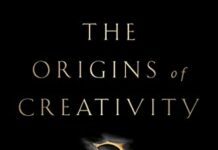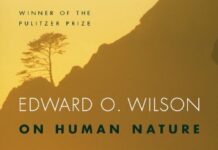
Ebook Info
- Published: 2014
- Number of pages: 112 pages
- Format: PDF
- File Size: 1.19 MB
- Authors: Edward O. Wilson
Description
A meeting of great minds at the intersection of the arts and sciences“Enchanting. . . . The Poetic Species is a wonderful read in its entirety, short yet infinitely simulating.” —Maria Popova, MarginalianIn this shimmering conversation, Edward O. Wilson, renowned scientist and proponent of “consilience” or the unity of knowledge, finds an ardent interlocutor in Robert Hass, whose credo as United States poet laureate was “imagination makes communities.” As they explore the many ways that poetry and science enhance each other, they travel from anthills to ancient Egypt and to the heights and depths of human potential.A testament to how science and the arts can join forces to educate and inspire, this book is also a passionate plea for conservation of all the planet’s species.
User’s Reviews
Editorial Reviews: Review World Literature Today Editor’s Pick“Enchanting. . . . The Poetic Species is a wonderful read in its entirety, short yet infinitely simulating.” —Maria Popova, Marginalian“The principle of consilience, or the unity of knowledge, infuses this conversation between biologist E. O. Wilson and poet Robert Hass. . . . The eminent duo explore echoes and parallels in their respective fields with eloquent concision, from Wilson’s advice to poets (“Colonize science”) to Hass’s musings on the interplay of selfish gene and social imperative in imagination.” —Nature: International Weekly Journal of Science“The Poetic Species explores the intersection of science and the arts in relation to the staggering environmental crisis the world is encountering. I am encouraged by this call to action by both scientific and literary communities and curious about the possible responses.” —World Literature Today Editor’s Pick citation About the Author Coauthor of The Poetic Species, Edward O. Wilson (June 10, 1929 – December 26, 2021) was an American biologist, researcher, theorist, naturalist, and author of the New York Times bestsellers The Social Conquest of Earth and Anthill: A Novel, as well as the Pulitzer Prize–winning On Human Nature and (with Bert Hölldobler) The Ants. For his contributions in science and conservation, he received more than 100 awards from around the world.Coauthor of The Poetic Species, Robert Hass has served as United States Poet Laureate and as a Chancellor of the Academy of American Poets. He has published many books of poetry, including Time and Materials, winner of both the Pulitzer Prize and the National Book Award, and What Light Can Do: Essays on Art, Imagination, and the Natural World, winner of the PEN/Diamonstein-Spielvogel Award. Awarded the MacArthur “Genius” Fellowship, the National Book Critics Circle Award (twice), and the Yale Younger Poets Prize, Hass is co-founder of River of Words, an environmental education program for children, and a professor of English at the University of California at Berkeley.
Reviews from Amazon users which were colected at the time this book was published on the website:
⭐While these are two intellectual giants they don’t end up really dancing together in this Conversation. I don’t really know Robert Hass’s work very well, but I very much admire the tremendous shifts in thinking that Wilson generated. This didn’t add any depth or further feeling to that work and left me waiting for when the game would begin.
⭐It is almost obvious and fraternal to enjoy Wilson’s writings on prose, poems and research.This is another book everybody should have to enjoy oneself and to give joy to others.A wonderful reading. George
⭐Book arrived with grubby marks on the cover
⭐
⭐Great conversation,
⭐This very short book records a public discussion between eminent biologist Edward O. Wilson and former US Poet Laureate Robert Hass. The discussion was first recorded in December 2012 at the American Museum of Natural History in New York.The discussion is led by Hass but the focus is mostly on the work and thoughts of Wilson. Hass’ contribution is to try to relate Wilson’s ideas to poetry and the poetic experience. The ultimate purpose is to raise awareness of the preservation of biodiversity and the role that poetry can play in this.The Foreword by Lee Riccetti, Executive Director, Poets House, not unlike the vast majority of the text is an edited transcript of the original discussion. I do not believe this edited text is entirely accurate, nor can it be fully appreciated without referring to the original recording (http://www.youtube.com/watch?v=jkCZPHuurs0). This is for two reasons. Firstly, many of the genuine moments of connection and delight between Wilson and Hass do not come across in the text. Further, Wilson has been done something of a disservice in Lee Riccetti’s Foreword. I will go into the misgivings later. But first here are some great moments that make the discussion between Wilson and Hass worth contemplating.Firstly, both Wilson and Hass agree that we live in a different sensory world from that of animals. Wilson proposes that the arts can help us for purposes of empathy to understand and appreciate the non-human perspective.Secondly, during the discussion on the extension of wilderness areas, Hass brings the up the topic of the natural recovery of the DMZ between the two Koreas, now becoming a valuable wilderness area and home to very rare species. The high point is to see the now 85 year old Wilson truly animated and totally at ease with Hass. At one point Wilson adds with a boyish enthusiasm ‘…and you know the leopards have returned’Thirdly, Wilson asks Hass whether there is a trend to infuse of biological knowledge into literature. Hass replies with an anecdote that greatly amuses and delights Wilson. Hass was invited to his granddaughter’s kindergarten class to talk about poetry. He had the children recite with him Elizabeth Bishop’s ‘The Fish’ to gasps of delight from the children. For Wilson this was an `a-ha’ moment and he replied arm raised, ‘You’ve got it! That’s story telling in the old tradition.’ It is a great moment to see the poet and the scientist truly connecting around the teaching of little children about the wonder in the natural world. From here Wilson and Hass both agree that much can be done to raise awareness of biodiversity through education. Wilson advocates the telling of stories and a form of discovery education.Furthermore, great literature for Wilson is a precise natural history of universal human nature, and the role of the writer is to reveal this. Wilson’s position on an inherited and determined human nature is highly controversial in the humanities and there is an initial tension between the two men.Lastly, Hass asks Wilson what he thinks poets can do for education to raise biodiversity awareness. Wilson replies: ‘Colonise Science’. Hass does not reply to this nor ask Wilson what he means. In fact the formal discussion ends abruptly here on the recording but continues in the text with additional unsourced comments by the speakers.A large part of the discussion and initial tension between the two men turns around the central proposition in Wilson’s recent book ‘The Social Conquest of Earth’. The key point is that the human condition is inherently conflicted: in part we are profoundly group orientated or ‘besotted by the group’ as Wilson says, but at the same time self-serving within the group. This aspect is explained very clearly by Hass. The dark side of group selection is that there is a tendency toward inter group competition that may lead to warfare. Riccetti in her Foreword suggests Wilson could be advocating war as a means to enhance group evolution. This is an unfortunate attempt to revise the old defunct and misplaced controversy over the publication of Wilson’s ‘Sociobiology’ during the 1970’s and spoils what was a very fruitful discussion between these two thinkers.Inspite of this, Riccetti’s Foreword makes the following interesting points about the importance of poetry to science.a) Poets and scientists both work with analogy and metaphor and this is part of the way we think.b) Riccetti reports on the `Language of Conservation’ experiment run by Poets’ House. This involved posting poems with animal exhibit in zoos across the US. Results revealed that the poetry helped people connect emotionally with the animals and raised their awareness of the need for conservation. The study also revealed that the public generally have a fear of both poetry and science.I have hesitated between awarding this book two or three stars. In spite of the issues, if it is read as in conjunction with the original recording now posted on Youtube, I think there is much to be gained from its contemplation. I would hope that if there is to be a second edition that the original transcript be published in its entirety and unedited. Further, that Riccetti’s Foreword be revised to eliminate the misplaced attempts to stir up the long since resolved and wrongheaded controversy surrounding ‘Sociobiology’ of the 1970’s.
⭐A dialogue between a biologist and poet that explores how science and the humanities complement each other and the role the two fields of study play in conserving the environment. This short book will interest environmentalists and those curious about how art and science intersect.
⭐Very short book. Description did not capture essence of publication. Cost too much for too little.
⭐It enriches our humanity.We need stories to tell our children – stories that they are part of and add to.And the greatest of these stories is the wonder and preciousness of life.
⭐Robert Hass is decent, surefooted, yet unremarkable, poet; E.O. Wilson is a great entomologist and natural philosopher. Hass is not the perfect interlocutor. Wilson expounds but not extensively. Go to his “The Social Conquest of Earth” for a better essay.
⭐Interesante, pero no vale los 8 euros. Es muy breve (quizás media hora de lectura) y se tratan algunas cosas interesantes del ser humano, la sociedad y el juego entre ciencia (biología) y arte (poesía), pero, bajo mi perspectiva, es una entrevista-conversación sobrevalorada.This was not what I expected it to be, but it was much better. A good first step in opening the conversation between the arts and sciences and suggestions of how we can better work together.
Keywords
Free Download The Poetic Species: A Conversation with Edward O. Wilson and Robert Hass in PDF format
The Poetic Species: A Conversation with Edward O. Wilson and Robert Hass PDF Free Download
Download The Poetic Species: A Conversation with Edward O. Wilson and Robert Hass 2014 PDF Free
The Poetic Species: A Conversation with Edward O. Wilson and Robert Hass 2014 PDF Free Download
Download The Poetic Species: A Conversation with Edward O. Wilson and Robert Hass PDF
Free Download Ebook The Poetic Species: A Conversation with Edward O. Wilson and Robert Hass

